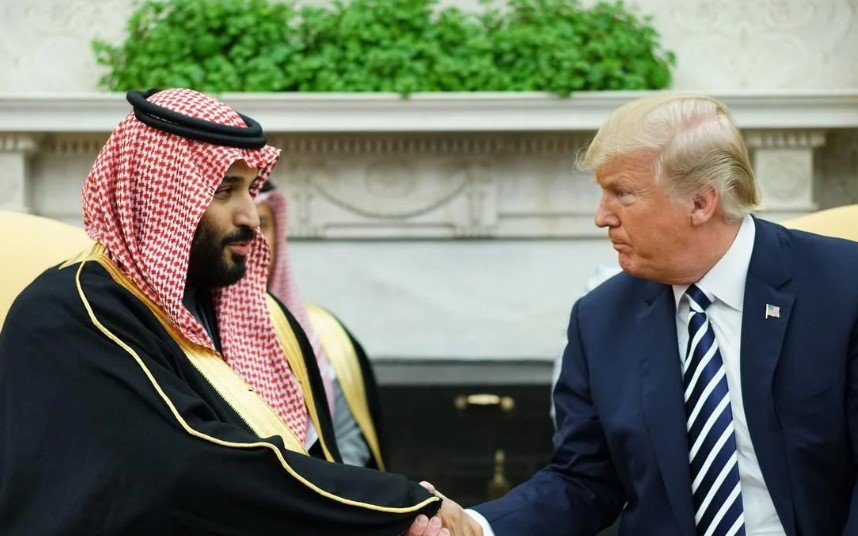The Trump administration’s nuclear overture to Saudi Arabia is raising eyebrows. While it might unlock diplomatic wins elsewhere, critics argue Washington is handing out the keys to a reactor with no clear benefit to itself.
A Costly Deal with Uncertain Dividends
The plan sounds dramatic: give Saudi Arabia the green light to develop nuclear power, potentially including uranium enrichment. In exchange? Maybe Riyadh finally recognizes Israel, something U.S. leaders have been chasing for years.
But here’s the catch—America foots the bill, politically and diplomatically, while Israel and Saudi Arabia rake in the rewards.
The U.S. would take on the risk of proliferation, damage its credibility in non-proliferation circles, and spark anxiety in the region. Meanwhile, Saudi Arabia inches closer to a nuclear future, and Israel could win a public diplomatic nod from one of its most powerful Arab rivals. And the U.S.? Left holding the bag.
What’s Driving Riyadh’s Nuclear Ambitions?
Saudi Arabia’s interest in nuclear energy isn’t new. The kingdom wants to future-proof its economy by reducing domestic oil consumption and investing in long-term energy diversification. That means nuclear power.
But it’s not just about energy. This move could give Riyadh more geopolitical clout and technological prestige, especially in a region where Iran’s nuclear program continues to loom large.

For Saudi rulers, it’s about status, leverage, and regional influence. And yes, potentially hedging against Iran.
One-sentence pause here.
However, the U.S. offering enrichment capabilities—something even its closest allies rarely receive—raises red flags. It risks blowing open the door for future weapons capability, intentional or not.
Trump’s Bet: Normalization First, Then Peace?
Donald Trump’s team is pitching this as a masterstroke—unlocking Saudi-Israel normalization, the holy grail of Middle East diplomacy. But the Palestinian question still sits in the middle of the room like an elephant no one wants to name.
Israel’s far-right government hasn’t moved an inch toward the two-state solution. And after the brutal 2023 Gaza war, public support for normalization in the Arab world has cratered.
Yet, despite all this, the Trump administration seems determined to move forward with a U.S.-Saudi deal first, with the hope it will drag normalization along for the ride.
It’s a gamble that could backfire. Big time.
The Abraham Accords Template Isn’t Enough Anymore
Let’s be real: the Abraham Accords were a win. But they were low-hanging fruit—none of those countries were ever at war with Israel.
Saudi Arabia is different. Its weight in the Arab and Islamic world makes its recognition of Israel a big deal, and Riyadh knows it.
-
In 2020 and 2021, Israel normalized ties with UAE, Bahrain, Morocco, and Sudan.
-
Saudi stayed out, holding firm on its demand for real steps toward a Palestinian state.
-
Post-2023 war, that stance has hardened, not softened.
So why is Trump’s team pretending the past two years didn’t happen?
A Risky Precedent on Nuclear Technology
Offering nuclear technology—especially uranium enrichment—to a country that isn’t a close U.S. ally? That’s a break from decades of nuclear policy.
This chart tells the story: Washington has been strict on enrichment even with allies. Handing that over to Saudi Arabia could erode that standard.
Even if the intentions are peaceful, enrichment brings a country dangerously close to weapons-grade capability.
Who Really Gains from This Grand Bargain?
This isn’t just about nuclear energy or diplomacy—it’s about leverage.
Israel wants Saudi Arabia on its side to contain Iran.
Saudi Arabia wants nukes, security guarantees, and global legitimacy.
The U.S.? It’s offering a lot and asking for… what, exactly?
Trump’s strategy might look like realpolitik, but to critics, it feels more like one-sided generosity. Or worse, desperation for a diplomatic win.
At a time when American influence is under pressure globally, giving away nuclear leverage with few strings attached might not be the smart play.
